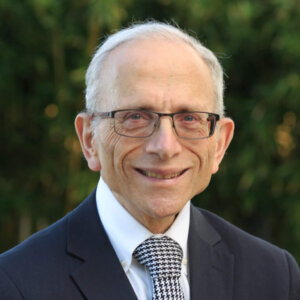Rabbi Yoffie’s Legacy: ‘Old Ideas’ for Reform Judaism
In announcing that he will retire from the presidency of the Union for Reform Judaism in two years, Rabbi Eric Yoffie said that he aimed to give the URJ “ample time” to search for his successor. It’s a good thing, too. That search will require careful thought. Given the longevity of those tasked with leading the Reform movement’s congregational arm — Yoffie will have been in the job 16 years when he steps down, while his two predecessors, Maurice Eisendrath and Alexander Schindler, served for 31 years and 23 years respectively — the choice seems likely to define Reform Judaism’s priorities and direction for a generation to come.
During their tenures, Eisendrath and Schindler focused on growing Reform Judaism, which today is America’s largest Jewish religious movement. They developed initiatives dealing with social action and religious outreach, and served as spokesmen for liberal Judaism around the world.
Yoffie, by contrast, has worked to turn Reform Judaism inward, urging its rank and file to focus on enriching their spiritual lives and expanding their knowledge of Judaism. “At this critical juncture in Jewish history,” he declared at his 1996 installation, “it is study of Torah, and prayer, and encouraging the mitzvot of home and family life that come before anything else.”
That this course would define Yoffie’s presidency quickly became clear. “Rabbi Yoffie is seen as the leader steering the movement toward greater tradition, ritual and emphasis on education and youth,” this newspaper reported when it named him America’s number one Jewish leader in its 1999 Forward 50 list. “He is resuscitating the Reform movement’s youth group, is presiding over a phenomenal expansion of the Reform camping system and is making intensive adult Torah study a hallmark of his tenure.”
As time went on, Yoffie exhorted his movement to address other issues and challenges as well. “We no longer understand what peoplehood means,” he complained in 2003. He called upon Reform Jews to renew their commitment to klal yisrael. In a major address two years later, he promoted conversion to Judaism, especially of the non-Jewish spouses of intermarried Jews. “We need to say to the potential converts in our midst: ‘We would love to have you,’” he stressed. More recently still, he has warned against the hook-up culture among young people and urged his movement to engage with issues relating to sexual ethics. “At a large Reform congregation in Los Angeles,” he revealed, “they have prohibited the use of full-length tablecloths at b’nei mitzvah held in the synagogue. Why? Because kids are having oral sex under the tables.”
Ultimately, however, Yoffie always came back to the traditional emphases that have defined his presidency. As recently as 2007, he insisted that “sometimes we don’t need new ideas; we need old ideas.” Using language that any Orthodox rabbi could applaud, he called for “less corporate planning and more text and tradition; less strategic thinking and more mitzvot; less demographic data and more Shabbat.”
In searching for Yoffie’s successor, the URJ’s leaders will need to decide whether to continue to move in this direction. Some Reform Jews, they know, are restive. They disagree with their president’s outspokenness on Israel, feel uncomfortable with his enthusiasm for Hebrew and tradition, and wonder at his support for Reform Jewish day schools.
As a movement, Reform Judaism is also experiencing significant challenges. Numerically, its growth has stalled. Financially, it has been hit hard by the economic downturn, leading to painful cutbacks. It is winning fewer converts from non-Jewish spouses of Reform Jews nowadays, and sees many more unconverted non-Jews in its pews. Its youth activities, once a source of great pride to the movement, have faltered; the North American Federation of Temple Youth is in disarray. At the very meeting where he announced his retirement to the URJ’s trustees, Yoffie disclosed that Reform youths are falling away from the movement at an alarming rate: “If current trends continue, approximately 80% of the children who have a bar/bat mitzvah in our congregations will have no connection of any kind to their synagogue by the time they reach 12th grade.”
In confronting these challenges, will the URJ look to a leader who champions, as Yoffie consistently has, Torah, prayer and the practice of mitzvot? Or will it, in keeping with American Jewry’s larger outward turn, select a leader who will take the movement in a new direction, perhaps seeking to expand Reform Judaism’s involvement in projects of tikkun olam? Whatever happens, the Yoffie era will go down as an important period in the history of the Reform movement. At a “critical juncture in Jewish history,” he made Reform Judaism more Jewish.
Jonathan D. Sarna is the Joseph H. & Belle R. Braun Professor of American Jewish History at Brandeis University and is currently serving as senior scholar at the Mandel Leadership Institute in Jerusalem. His “Jews and the Civil War: A Reader,” co-edited with Adam Mendelsohn, has just been published by NYU Press.






















